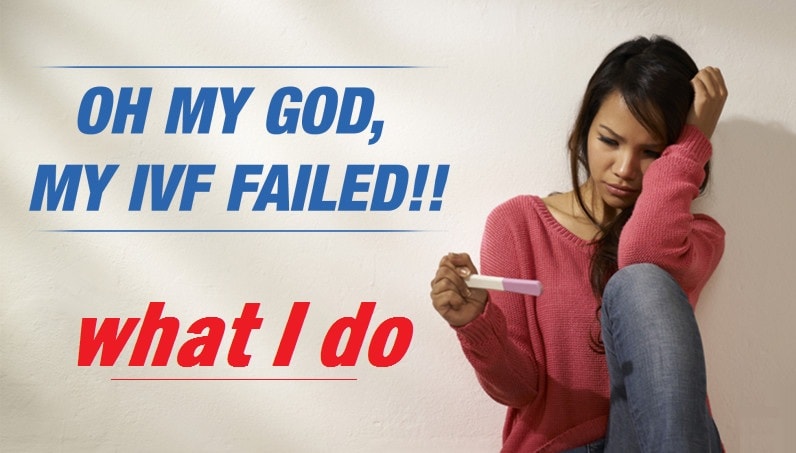Incapable to conceive even after IVF done– IVF is that productive method to solve the issue of those couples who are unable to figure out their matter of contention of not being fertile or to achieve pregnancy. We all know it better than each and every therapy has its own possibility to be accomplished. Beyond a shadow of a doubt, experts or doctors give all their efforts to have positive results while performing any treatment, same goes for the solution of infertility. One out of seven couple is having the complication of not being fertile nowadays. To get rid of this issue many of the infertility medicaments has been refined; but what if the most and efficacious treatment will not get big hit. It’s far viable to get pregnant even after failed IVF cycle, as there are ranges of couples that get their infant in second or even third attempt. So don’t think that IVF cannot give you the results you want after one failure.

Reasons why IVF is not successful –
- Quality of an Embryo (low quality of either egg or of sperm)
- Failure of Implantation
- Age of the women
- Poor ovarian response
- Unexplained IVF failure
No need to worry; as there are numerous options to dispose of this leading astriction-, IVF has its own various solutions because there is not a single option if you will undergo IVF treatment. There are many steps in this procedure to have IVF done by selecting different methods, such as –
- The cycle of IVF can be unsuccessful despite good numbers of eggs (and embryos) if egg quality is not good. Quality of eggs displays about 90% of the final pleasant of an embryo. Poor eggs will never have positive results in the treatment of IVF and it can lead to a negative response. For this hurdle, we can have the option of EGG DONOR, to have proper fertilization and thus achieving healthy Pregnancy. Donor IVF permits the lady who otherwise would don’t have any chance of being pregnant and supply her personal toddler with the use of the sperm from her husband.
- Surgery to restore parts of your or your associate’s reproductive system. As an example, you could need the surgical operation to your Fallopian tubes to help your eggs travel from your ovaries on your
- Undergo the treatment of Controlled ovarian hyperstimulation (COH) – It is a type of fertility remedy that makes use of medicines to assist the female body to ovulate (launch an egg). COH can lead to better ovulation and have the advantage of IVF bring about.
- We can have the technique of ICSI with IVF. ICSI is Intracytoplasmic sperm injection (ICSI) in this process single sperm is directly injected into the egg received from a female. This technique is more fruitful because in it single sperm, which is most active and motile, is inserted in an egg to get better fertilization.ICSI is generally considered when there is the issue of less sperm motility or less production of sperm.
Better is to resolve the issue of Infertility by maintaining your lifestyle better-
Do some changes to your life that can help you to get pregnant without any medical remedy. As an instance, things, like smoking, drinking, being over- or underweight and taking certain medicines, can affect your fertility and make it more difficult to get pregnant. Sometimes, you know that answer is in your hand but you don’t take initiative to get that done. Why solve infertility with medical treatments when we have the natural ways. Balancing our diet chart, doing exercise daily, pulling out of smoking and drinking habits from our daily life will actually help to have pregnancy achieved. Limitation of tea or coffee can also lead to a better chance of conceiving.
Related Content: IVF cost Delhi
 Gestational Surrogacy Gestational Surrogacy India: A Hub of Surrogate Mother Delhi
Gestational Surrogacy Gestational Surrogacy India: A Hub of Surrogate Mother Delhi




